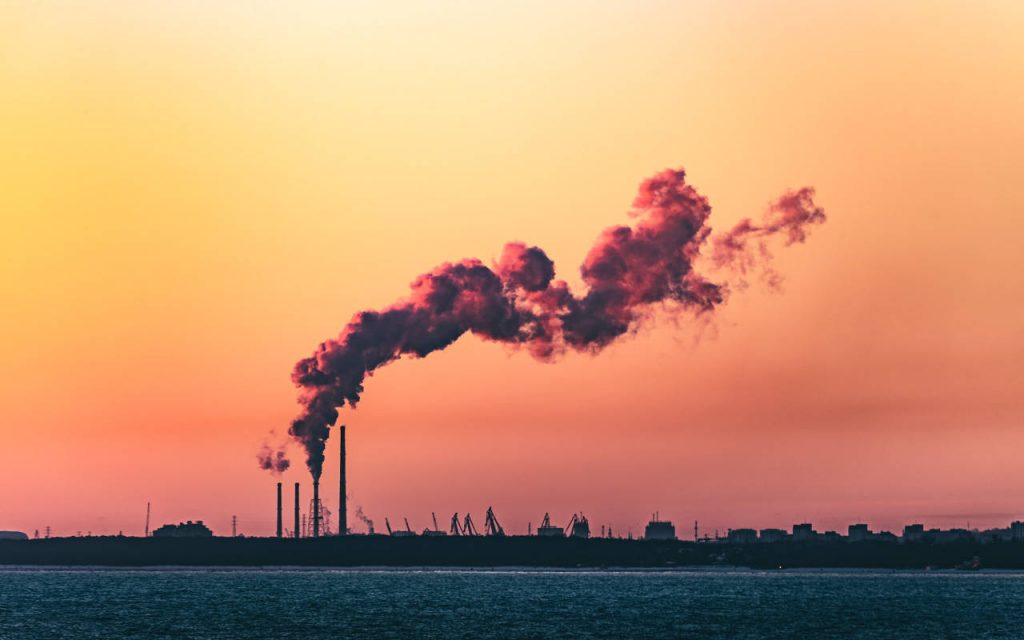The climate crisis is a fatal car crash, happening in slow motion.
The Earth is the car, and we are driving. We can see the brick wall of a 1.5ºC global temperature rise, dead ahead. But instead of putting on the brakes, or changing direction – the accelerator is planted to the floor. Humanity is asleep at the wheel, and within as little as five years, we’ll hit that 1.5ºC brick wall at maximum speed.
It’s unthinkable that we’re in this position, and alarming that more people aren’t… well, alarmed.
But that might be by design. It feels like the emergency has been derailed, diffused and placated – transformed into some kind of a distant, far away event that we won’t have to worry about until 2050, or 2100, or some other arbitrary date. And all the while, there’s another environmental enemy to fight. Another uncomfortable distraction from the impending doom of our carbon-filled atmosphere. Unlike CO2, this one isn’t invisible. It’s everywhere you look: plastic pollution.
And what a scourge it is. There will be more plastic than fish in the sea by 2050. This is the harsh reality that we face, unless we manage to educate, recycle, and properly manage end-of-life plastics.
But here’s the thing; if the oceans get any warmer than they are now, there’ll barely be anything alive in there to compare to the volume of plastic.
Have we got our environmental priorities all wrong?

Action on the climate is hard to achieve
It was 1988 when Jim Hansen, a NASA scientist, sat before Congress in the United States and said:
“The greenhouse effect has been detected, and is changing our climate now.”
He was 46 or 47 years old at the time. Since he gave that statement, humankind has created more than half of all the CO2 emissions ever released. Within his lifetime, he has witnessed the discovery of the greenhouse effect on Earth, decades of climate apathy, and may well live to witness the oncoming tragedies of climate disaster.
The issue might not be that nobody cares, though. It might be that real climate action is hard, and that knock-on effects are rarely considered.
Solar panels, for instance, are dirty and exploitative in their manufacture – and have an operating life of around 10 years. Wind turbines only work when there’s wind, and are difficult to recycle come end-of-life. Storing all that power with batteries is currently impossible – and woefully inefficient at best.
But with better management, these could be our best hope of making cheap, clean energy for generations.
The problem is that the oil and gas industry is institutionally rooted into all of our infrastructure. Everything runs on gas, petrol, diesel, and fossil fuels. And it all works. Overhauling the entire system is a bill few nations are willing to pay, especially when alternative energy is still a little bit hit and miss.
It’s hard to wean ourselves off fossil fuels. And so, plastic became the poster child for environmental action; something tangible, visible – notorious. Campaigners went after this visible enemy hard in the 2010s, all but forgetting about carbon until the wildfires of the late 20-teens and beyond once again grabbed the world’s attention.
We can’t forget – plastic as a byproduct of the oil industry. The climate crisis and plastic production are linked, because without oil, we have no plastic.
And without plastic, we have to accept the breakdown of every system we depend on, from food to healthcare. We could live without fossil fuels; electric cars are beginning to prove that point. But we can’t live without plastic. Not anymore.
If we banned fossil fuels tomorrow, we’d be uncomfortable – but we’d live until wind farms and alternative power generation caught up to demand. If we banned plastic tomorrow, on the other hand – we’d probably starve. And not because there’d be nothing to wrap produce in, but because the entire process of growing food through to the logistics chain is dependent on plastic.
Read more – Polythene for Farming and Agriculture
Burning fossil fuels is unquestionably bad. Plastic pollution is unquestionably bad. We’re not suggesting that plastic isn’t problematic – in fact, we never have. We’re saying that, if properly managed, recycled and given proper end-of-life, plastic is on balance far better for the environment than the alternatives that have stepped in to replace it for the sake of environmental gesturing.
The reasons why plastic is actually GOOD for the planet. And the reasons why it’s not…
Plastic is everywhere because it is the best material we’ve discovered for just about every job you can imagine. It’s lightweight but durable. It’s cheap, moisture resistant, chemically inert, food safe – it’s recyclable, reusable, and so much more besides.
Using plastic for packaging increases yield in a smaller footprint and lower weight – meaning lower carbon emissions than any other packaging type. It is cleaner to produce than paper and glass – by a long way.
The key disadvantage of plastic is in its disposal. It rests entirely on the end user. And people, in large numbers and populated areas, tend to be a little bit… rubbish with their rubbish.
So, what’s the solution? Should the government do more about plastic pollution? Are initiatives like the Plastic Packaging Tax going to help?
It’s kind of on all of us. We might never be able to recover all the plastic pollution in the world, but if we as a species want to live long enough to try – we should focus all our energy on saving the climate first.
Recycled polythene for a sustainable future
Order recycled polythene from NPF Packaging – the polythene packaging experts. Get a quote now, or call us on 01773 820415 to get started.


